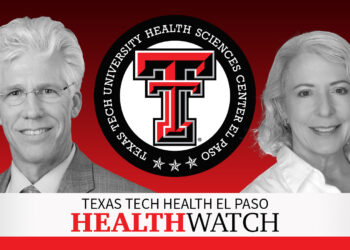SEATTLE — Social determinants of health, nonmedical factors that can have a significant influence on health and lead to various disparities in a variety of ways, affect the well-being of patients across every discipline of medicine, including dermatology.
In a discussion held during the Society for Pediatric Dermatology (SPD) 2025 Annual Meeting, Sarah Coates, MD, assistant clinical professor of dermatology at the University of California, San Francisco, highlighted the importance of these issues in the care of pediatric patients in dermatology. Providers, including dermatologists, should consider social risks, cost, and health literacy when formulating patient-centered care plans for children, she said.
Illustrating how nonmedical factors can have a profound impact on dermatologic health and lead to disparities in care, Coates presented a case study of a 10-month-old boy with atopic dermatitis, whose parents were evicted from their home after losing a job. “They are living in an emergency shelter with two other children with no access to privacy, a bathtub, and laundry facilities.”
The family had been back and forth to urgent care and the emergency department for the child’s frequent infections, were often late for their visits because of transportation difficulties, and could not afford over-the-counter (OTC) treatments.
“You only have 15 minutes, and you’re in a teaching clinic — your trainee comes out of the room and tells you this, and of course you’re feeling heartbroken and overwhelmed,” Coates said. “How do you care for people in challenging situations? Standard social history does not cover social drivers of health, so how can we move forward?”
Social determinants of health include factors such as access to care, the patient’s neighborhood, social access, and economic stability, and “are more important than anything we say to a patient when talking to them one-on-one,” she explained. “The standard social history we learn in medical school doesn’t address this,” she added.
Clinicians often lack the tools to address these factors and may feel powerless as a result. “But I would argue that this is very important and not just for primary care doctors but for us,” she emphasized. “If we can recognize what is going on in our patients lives, we can have a better relationship with them, and we can improve their adherence to treatment plans. It can improve our burnout and our sense of meaningful work and importantly, recognize health disparities and improve health equity.”
Interventions
To start, dermatologists can use the first “three As” of the National Academies of Sciences, Engineering, and Medicine framework at the point of care to identify and address social needs related to their patients:
- Awareness: Identify the social risks and assets of the defined patients and population.
- Adjustment: Alter clinical care to accommodate identified social barriers.
- Assistance: Reduce social risk by providing assistance in connecting patients with relevant social care resources.
“We do know that there are social determinants that contribute to more severe cases of atopic dermatitis,” Coates said. “These include lower socioeconomic status, single-mother households, lower parental education, poor parental health, and dilapidated housing.”
There are practical recommendations that can be provided to help families care for their child. The first is to address challenges such as unaffordable medications.
Paying for OTC products, for example, can be difficult. “Copays do not cover emollients, and Medicaid formularies in only three states cover bland emollients,” Coates noted, adding that families can spend from $35 to almost $320 a month on these products.
Cost varies considerably by brand. Recommending store brands of emollients, such as Walgreens, which are cheaper than name brands, can help, she noted.
Health literacy is another issue. Low health literacy is associated with reduced adherence, increased emergency visits, and poor outcomes. “Start by explaining things simply and avoid medical jargon,” such as using the terms “topical” and “systemic,” she advised.
Instead, she said, atopic dermatitis can be explained by saying, “Your child has an itchy rash called eczema. This makes the skin red, dry, and scaly. We cannot make it go away and stay away forever, but we have creams that can heal it. If these don’t work, we can try medicines that go throughout the entire body.”
Coates reported having no relevant financial relationships.
Source link : https://www.medscape.com/viewarticle/social-determinants-health-affect-patient-care-dermatology-2025a1000kpf?src=rss
Author :
Publish date : 2025-08-05 06:01:00
Copyright for syndicated content belongs to the linked Source.













